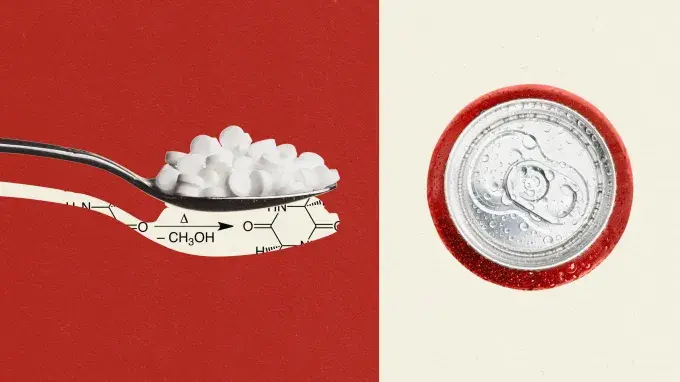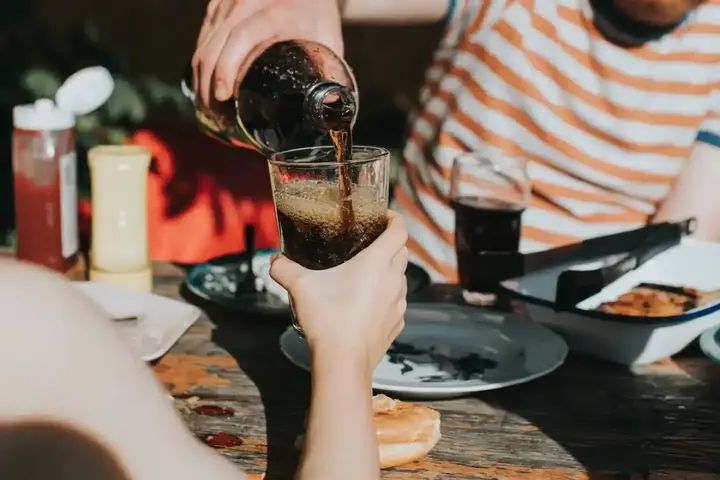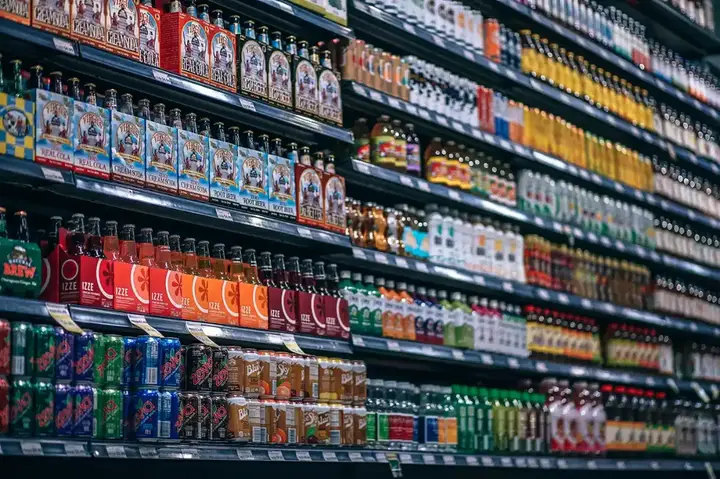Diet soda, aspartame and artificial sweeteners don't cause you cancer.
Aspartame is an artificial sweetener used in many products, including Diet Coke and Coca-Cola Zero. Like most artificial sweeteners, we have a wonderful love-hate relationship with him. It's sweet but doesn't contain any calories, so it's great for people who want to lose weight. But a large number of people believe that anything artificial is basically poison, and that sugar-free soft drinks may kill us all. However, the classification relied on weak data. Moreover, the International Agency for Research on Cancer is notorious for focusing on risk at the expense of risk, and not communicating well the important distinction between the two, causes confusion. The actual risk of aspartame causing cancer is very low. Conversely, the health consequences of consuming large amounts of added sugar — including the risk of diabetes and obesity — dwarf any theoretical risk of cancer from aspartame. This has caused a sensation, because aspartame is one of the most widely used artificial sweeteners in the world, and also because cancer is so scary.
Recommend
Categories of the International Agency for Research on Cancer

The first point to consider in this discussion about aspartame is the way the International Agency for Research on Cancer classifies things that can cause cancer in humans.
They have four categories:
1. Causes cancer
2. Often causes cancer
3. May cause cancer
4. It cannot be classified as a risk of cancer
There are some interesting points to bring up here. First, the International Agency for Research on Cancer never thinks about the magnitude of the risk. There are first-class carcinogens that cause cancer for everyone exposed to them, and other first-class substances that almost never cause cancer even in massive lifetime doses. For example, processed meat and plutonium are Class 1 carcinogens, although the risk of bacon is much lower than that posed by nuclear explosions. Now, as headlines indicate, the International Agency for Research on Cancer is upgrading aspartame to class 2b carcinogens, meaning it is "likely" to cause cancer. To clarify, by reference to the International Agency for Research on Cancer database of human carcinogens, we see that category 2b also includes:
• Coconut oil soap
•Cactus
• Pickled vegetables
• Talcum powder
• Work in the textile industry
•Nickel
And a whole host of other things too.
Category 2b doesn't mean that something is definitely or even probable – it does mean that there are some suggestions that something could reasonably cause cancer, and perhaps a small amount of evidence suggests this. So we know that Category 2b isn't necessarily a problem – in practice, it's often a method used by the International Agency for Research on Cancer to call for more research on an issue.
International Agency for Research on Cancer (IARC) is very poor at scientific communication

Well, there have been many studies looking at aspartame and other artificial sweeteners over the years. Overall, these studies have been very reassuring about the likelihood of cancer. In fact, there are many large epidemiological studies looking at hundreds of thousands of people that have failed to find a link between aspartame or other sweeteners and different forms of cancer. The International Agency for Research on Cancer (IARC) is very poor at scientific communication and the International Agency for Research on Cancer (IARC) cancer rankings may be one of the greatest failures of scientific communication in the world. The agency refers to "hazard" (i.e., whether the substance could be dangerous) rather than "risk" (i.e., the magnitude of any potential hazard). By declaring aspartame a "potential carcinogen," people around the world interpret this message as "sugar-free soft drinks cause cancer." As always, context is everything, and IRCAR's rankings often ignore this. Several studies over the years have investigated whether aspartame is associated with a higher risk of cancer. The resulting data is fundamentally mismatched. Some studies have found a slight increase in risk, while others have found no association. Rodent experiments show that consuming unusually high amounts of aspartame can cause cancer, but this applies to many chemicals that are consumed in extreme excess. That's why the Joint FAO/WHO Committee on Food Additives reasonably warns people against consuming more than 40 milligrams of aspartame per day per kilogram of body weight. For someone weighing 200 pounds, that's the equivalent of drinking 18 cans of diet soda.
Obesity vs. Cancer Risk

The International Agency for Research on Cancer's classification of aspartame as a potential carcinogen would undoubtedly cause a headache in the public relations of food companies that use this compound, and may prompt them to reformulate their products to avoid the risk of lawsuits against them – and unfortunately, this move may prompt drinkers of sugar-free soft drinks to choose sugar-laden options instead. Dr. Walter Willett of the Harvard T.H. Chan School of Public Health told NPR that this would be "the worst possible decision." The health consequences of consuming large amounts of added sugar, including diabetes and obesity, are diminished by the risk of far-flung cancer caused by aspartame. The simple truth is that every decision you make in your life affects your risk of cancer, from how much sleep you get, to what you eat at breakfast, to whether you ride your bike or drive to work. And how we balance this equation is up to each of us. Certain decisions, such as smoking and using beds that cause tanning, significantly increase the risk of cancer. Others, such as healthy eating and exercising, significantly reduce this risk.








